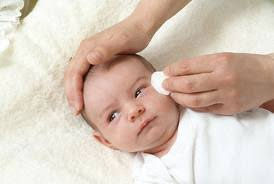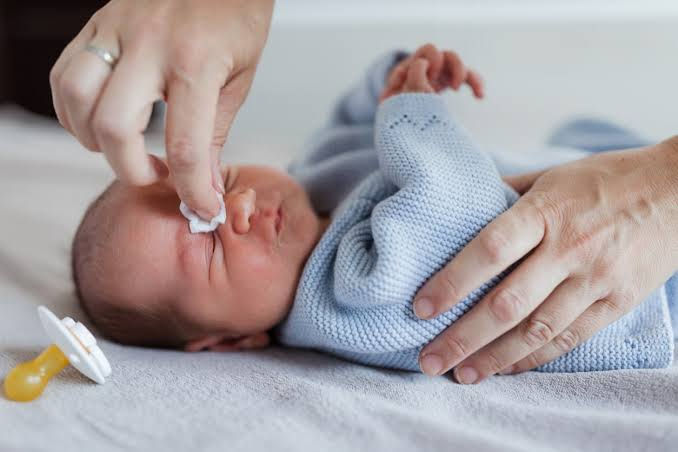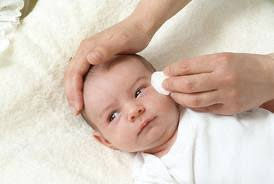
A New Parent's Guide to Baby Eye Care
- Druzycare
- Feb 3
- 2 min read
Your baby’s eyes are not only adorable but also incredibly delicate. Proper eye care is essential for their development and overall health. As a parent, understanding how to care for your little one’s eyes can help prevent infections, support healthy vision, and ensure their eyes develop as they should.
In this guide, we’ll cover essential baby eye care tips, common concerns, and when to seek medical attention.
1. Keep Their Eyes Clean
Newborns often have small amounts of discharge in their eyes, which is normal. However, to keep their eyes clean:
Use a soft, damp cotton ball or clean washcloth soaked in warm water.
Gently wipe from the inner corner of the eye outward.

Always use a fresh cotton ball for each eye to prevent cross-contamination.
Avoid using harsh soaps or baby wipes near their eyes.

2. Prevent Eye Infections
Newborns can be prone to eye infections, such as conjunctivitis (pink eye). To reduce the risk:
Wash your hands before touching your baby’s face.
Keep their bedding and towels clean.
If you notice red, swollen eyes or yellow-green discharge, consult a pediatrician immediately.
3. Watch for Tear Duct Blockage
Some babies are born with blocked tear ducts, causing excessive tearing or mild discharge. If this happens:
Gently massage the area between the eye and the nose using a clean finger.
Use warm compresses to help open the tear duct.
If symptoms persist beyond a few months, consult a doctor.
4. Protect Their Eyes from Bright Light
A baby’s eyes are very sensitive to bright light. To protect them:
Avoid direct sunlight exposure, especially in the first few months.
Use hats or baby sunglasses when outdoors.
Ensure room lighting is soft and not too harsh on their eyes.
5. Encourage Healthy Eye Development
Your baby’s vision develops rapidly in the first year. Support their visual growth by:
Holding toys or objects at different distances to help them focus.
Using high-contrast black-and-white books for newborns.
Encouraging tummy time to help strengthen their eye muscles.
Avoiding excessive screen exposure in the early years.
6. Recognize Signs of Eye Problems
While occasional eye rubbing or squinting is normal, watch out for these warning signs:
Persistent eye redness or swelling
Excessive tearing or discharge
A white or cloudy pupil
Difficulty tracking objects
Eyes that seem misaligned (crossed eyes or a lazy eye beyond 4-6 months)
If you notice any of these, consult a pediatrician or an eye specialist promptly.
Final Thoughts
Your baby’s eyes are precious, and with simple daily care, you can help ensure their vision develops properly. Regular check-ups, good hygiene, and protective measures go a long way in keeping their eyes healthy. If you ever have concerns, don’t hesitate to seek medical advice.
By following these steps, you can give your little one the best start toward a lifetime of healthy vision!





Comentarios